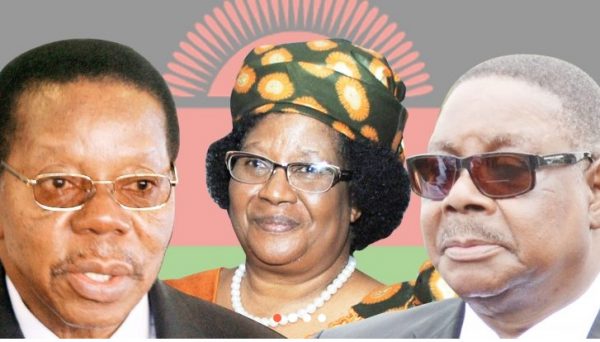The Anti-Corruption Bureau (ACB) director Lucas Kondowe has said the graft-busting body is seeking direction on the trial involving former president Bakili Muluzi and has up to Friday to inform the High Court the course of action.
Muluzi: Case has dragged for 11 years
Muluzi, who ruled the southern African country between 1994 and 2004, and his co-accused, his former personal assistant Lyness Violet Whisky,stand acc used of diverting at least US$ 13 million of what the State had claimed was donor money meant for various government development projects to his personal accounts.
He denies the charges, and vehemently alleged they were pressed on him for political persecution by his successor Bingu wa Mutharika.
According to ACB boss, the graft-bursting body simply has no objective material evidence that Muluzi was siphoning from state coffers during his decade as leader of the nation.
According to Africa Confidential publication, in early July Kondowe took the unusual step of visiting media houses to explain that after lengthy enquiries costing billions of kwacha, there was not enough evidence to proceed with the case against Muluzi.
Muluzi, 73, was first arrested in July 2006 accused of diverting $11 mn. in funds that had been gifted by Libya, Morocco, Kuwait and Taiwan.
Lead prosecutor and Kondowe’s deputy, Reyneck Matemba, recused himself on 5 May 2016 from the Muluzi case on “personal grounds”.
Kondowe claimed to have consulted three previous ACB directors – Gustave Kaliwo, Justice Rezine Mzikamanda and Alexius Nampota – on the Muluzi case and draw conclusion that the case isn’t strong enough.

Malawi infamous cashgate took place under their watch: Late Bingu (L), Banda (C) and Mutharika
The ACB boss stressed there is no political hand in the direction of Muluzi case, saying bureau is an independent institution that makes independent decisions – a point backed by Malawi Law Society.
Meanwhile, according to local press, debate for enactment of a legislation obliging political parties in Malawi to disclose their private financiers to deter parties from obtaining funding from “dubious” sources.
Such a bill championed by Centre for Multiparty Democrcat (CMD) was already submitted to Ministry of Justice and Constitutional Affairs in January this year.
“The absence of legal frameworks governing private financing of political parties is a huge deficiency in a democracy for although money is an asset in politics, it can at the same time be a liability. The relationship between money and politics remains one characterized by contention and controversy in every democratic state,” argued political analysts Dr Augustine Magolowondo in an article published by Nyasa Times.
“It is not only the question of access to resources that can skew and endanger the democratic play field; it is also how those resources are acquired, who provides them, under what terms and how they are used that is equally critical. As the saying goes, those who pay the piper call the tune.
“ It is very likely for a party to be held at ransom by those who finance it. In the worst case scenario, it is even possible to have a party in power that is remotely controlled by actors outside it and whose (actors’) interests are inimical to society at large,” Magolowondo further argues
He states that Malawi is in an urgent need of a “clear and robust” legal framework that will ensure that party financing does not degenerate into a liability to the democratic cause.
A constitutional law expert Edge Kanyongolo, who is lecturer at University of Malawi’s Chancellor College, agreed on the need to have a robust legislation on political party funding, as he is quoted by The Nation saying it is the empowerment of the citizenry – and the media – by improving their access to public information and thus their knowledge of the “strings” behind the political parties.
Patrick Zeus Phambala, a Lilongwe-based political and social commentator, proposes the establishment of a political party funding regulatory body which, in his view, would widen public interest in the running and overall ownership of parties.
According to Phambala, unregulated party funding is responsible for the demigods in political parties.